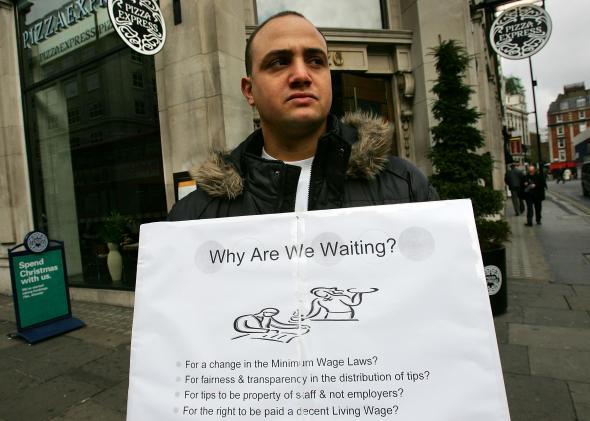Today the Congressional Budget Office put out a report (PDF) on the economic impact of raising the minimum wage to $10.10, and it found that doing so would probably reduce the total number of people employed but also raise the incomes of low-income families.
The White House has struck back citing contrary research, and in my experience the empirical evidence on this question has never persuaded anyone.
So let me make another point. If the White House genuinely believes that a hike to $10.10 would have zero negative impact on job creation, then the White House is probably proposing too low a number. The outcome that the CBO is forecasting—an outcome where you get a small amount of disemployment that’s vastly outweighed by the increase in income among low-wage families writ large—is the outcome that you want. If $10.10 an hour would raise incomes and cost zero jobs, then why not go up to $11 and raise incomes even more at the cost of a little bit of disemployment?
Of course politics is politics. And in politics, you always want to say that you have policies where folks can have their cake and eat it too. But logically speaking, the overall goal of economic policy isn’t to maximize employment, it’s to maximize prosperity. A minimum wage hike with a small but real disemployment impact is the minimum wage hike you want.
